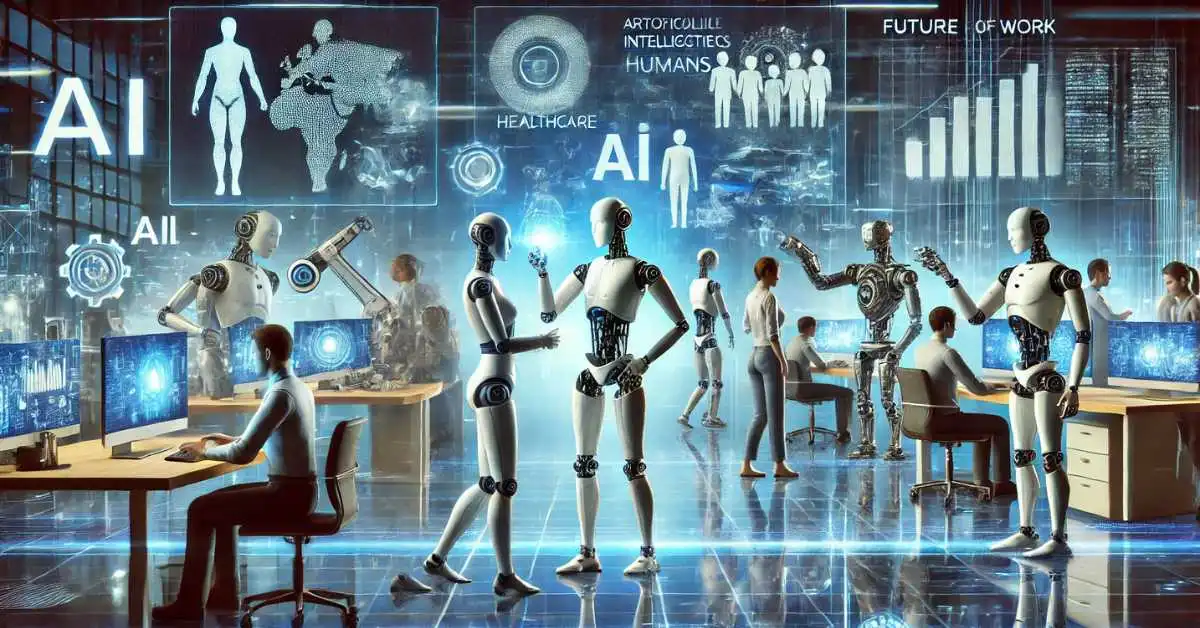Introduction
People remain enthralled by and fearful of this question which asks whether Will AI replace humans? The development of AI transforms industrial operations while it transforms traditional workplace activities. The disappearance of certain tasks does not sign a complete end for employment opportunities available to humans. The human workforce is adapting to changes while specific occupations will endure while fresh positions develop and particular jobs maintain their essential nature. The future development of AI will impact which jobs people will do in the next ten years. This piece investigates AI’s impact on work environments together with the skills that will make you successful in current evolving work systems.
The Rise of Artificial Intelligence
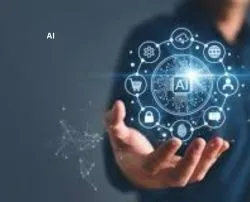
AI exists now and controls both automated vehicles and automated customer service systems. AI exists within modern business operations to enhance operational performance while decreasing business operational expenses. Numerous workers wonder today if Will AI replace humans or establish new operational methods.
Computers do well at ruling out repetitive work but they lack human intelligence along with creativity and empathy and intricate decision-making ability. People still require the distinct capabilities that only humans possess.
AI and Job Evolution
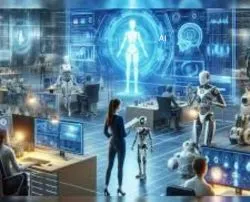
How AI is Reshaping Industries
The technological capacity of AI includes processing enormous datasets and conducting automatic workflow operation and immediate decision processing. Modern healthcare leadership together with financial sectors and manufacturing industries along with educational institutions and customer service organizations use it to transform their operational fields. Employment changes due to AI represent the main difficulty instead of whether AI replaces work.
Automation vs. Human Jobs : The Real Picture
Experts agree that AI robots will not wipe out every existing job from existence. The integration of automation services with human activities demonstrates higher possibilities than complete automation replacement. Task automation through AI software works most effectively on recurring yet predictable work yet humans remain indispensable to perform creative conceptualization together with moral understanding and emotional abilities.
Industries Most Affected by AI
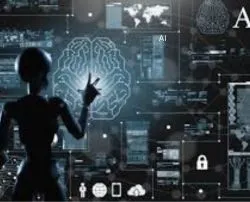
1. Manufacturing and Automation
This question which asks whether Will AI replace humans? AI technology operates machines for complex assembly work which eliminates requirements for people working on factory production lines. These technological changes create new fields for AI oversight as well as system management and robotic maintenance responsibilities.
2. Healthcare and AI Integration
AI boosts medical diagnosis precision and performs robotic medical procedures yet retains no ability to match human healthcare providers’ emotional intelligence and professional duties and moral judgment.
3. Education and AI-Driven Learning
Personalized learning programs and grading management are two of the administrative functions that AI tools handle efficiently. Man made intelligence technology falls short of achieving the mentoring and emotional assistance only teachers can deliver.
4. Finance and AI-Based Decision Making
The detection of fraud as well as risk assessments and execution of trades undergo transformation through the use of AI. Although AI is critical for financial planning and strategy development humans are the fundamental need for building relations with clients and creating financial strategies.
5. Customer Service and AI Chatbots
This question which asks whether Will AI replace humans? Virtual assistants are designed to resolve basic inquiries but customers need human agents for complex situations combined with emotional assistance.
Human Jobs That Will Thrive
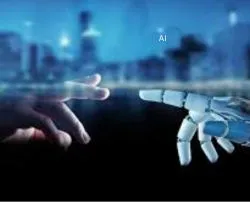
AI Maintenance and Development
This question which asks whether Will AI replace humans? AI technology expansion creates increased market demand for both software developers and AI trainers together with data scientists. Organizations require personnel who implement AI systems both ethically and efficiently.
Creative Fields and Human Ingenuity
Human beings alone possess unique creativity which manifests in various skills including writing and filmmaking and marketing together with design. Computers have the capacity to boost human storytelling though they lack the ability to achieve genuine emotional storytelling.
Healthcare and Emotional Intelligence Roles
This question which asks whether Will AI replace humans? The unique human emotion of empathy found in doctor’s therapists along with nurses exists beyond AI capabilities to provide care.
Skilled Trades and Hands-on Work
This question which asks whether Will AI replace humans? The floor jobs of plumbing electrical work and construction need human hand coordination and improvised troubleshooting which AI programs do not match.
Cybersecurity and Data Privacy
With rising digital threats, the workforce demands individuals who will specialize in cybersecurity through roles such as ethical hackers while simultaneously requiring data privacy officers. These positions need people who perform evaluations alongside continual improvements.
The Skills You Need to Survive AI Disruption
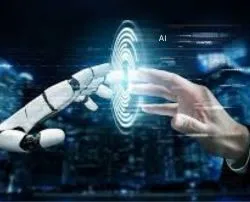
Digital Literacy and Tech Adaptation
This question which asks whether Will AI replace humans? Workers need to develop full understanding and use of AI tools together with machine learning and data analytics if they want to continue operating in competitive fields.
Critical Thinking and Problem Solving
This question which asks whether Will AI replace humans? The ability to process data belongs to AI machines but human operators maintain superior capacity for ambiguity interpretation alongside ethical reasoning.
Emotional Intelligence and Human Touch
This question which asks whether Will AI replace humans? Organizations will prioritize jobs focused on human interactions along with emotional sensitivity due to their need for empathy and skilled communication abilities.
Adaptability and Continuous Learning
This question which asks whether Will AI replace humans? Those who welcome change together with continuous learning as well as updated work roles will form the workforce of the coming years.
The Future of Work: Humans and AI Together
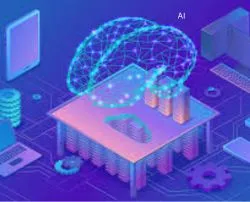
Collaboration Between AI and Humans
AI does not aim to erase humankind but intends to be our supporting resource. Machines will perform data processing tasks in future work environments because humans will dedicate their energy toward innovation alongside ethical leadership.
Ethical Concerns and AI Regulation
AI integration demands maximum attention to ethical principles within all user applications. Organizations along with governments need to develop policies that maintain responsible usage together with job security and bias prevention efforts.
AI as an Enabler, Not a Job Killer
Eliminating concerns about requires Will AI replace humans? altering the AI replacement question to become a query about how AI supports humans to achieve improved achievements. Proper utilization of AI technology enables enhanced creative production alongside higher productivity rates and it permits the foundation of brand-new economic sectors.
Conclusion
Will AI Replace Humans? It indicates a fundamental change in work methods. The process of automation will affect specific job titles yet numerous additional roles both exist currently and will become available in the future. Humans can thrive and survive in AI-powered environments through their ability to adapt along with their critical thinking skills and emotional intelligence training along with their desire to learn new competencies. AI represents a growth and innovative opportunity that people should perceive instead of fearing in order to claim ownership of the forthcoming future.
FAQs
1. Will AI completely replace human jobs?
Routine activities are AI territory but human intervention stays crucial because emotional insights and innovative problem-solving and difficult choices need human intelligence.
2. What jobs will be safe from AI?
People should acquire digital competencies while nurturing emotional competencies together with developing adaptable skills through ongoing learning.
3. How can I future-proof my career against AI?
People should acquire digital competencies while nurturing emotional competencies together with developing adaptable skills through ongoing learning.
4. What industries will AI impact the most?
AI technology has the biggest scope of influence in manufacturing industry and finance together with healthcare and education with customer service by performing automated tasks to gain efficiency.
5. Will AI create new job opportunities?
Absolutely. The digital age has created three new professional areas which blend human expertise with AI training and scientific capabilities together with ethical decision-making functions.

